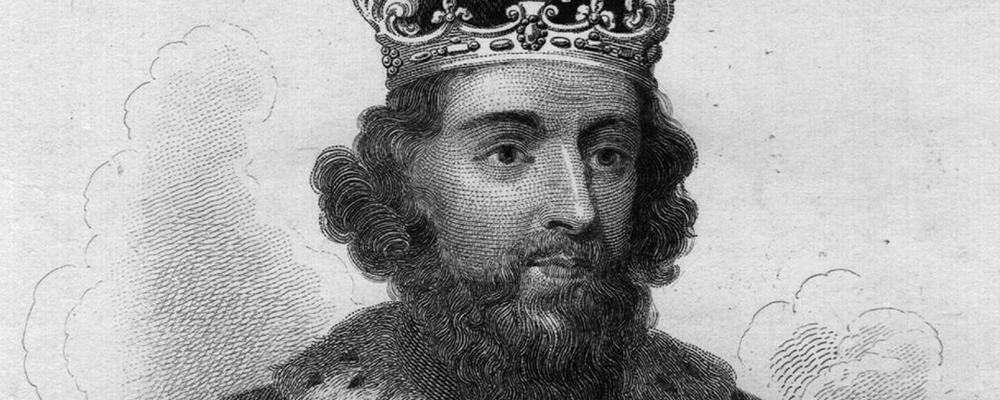I looked high, and I looked low. Alfred was an amazing person. He was once said to have been blessed with sickness in life. It gave him a sense of empathy, and understanding that Kings before, and most afterwards would lack. I have to say it, Alfred was GREAT. Unless I can find another source in my studies as they continue into the University of California, Berkeley; I will maintain that Alfred was deserving of the title “great”. He promoted literacy in a time where there was none. He cared for his people, and united them to fight a great foe (one of few instances of nationalism working-out). He believed in translating the Bible and most works into English, which in its time was a bottom language according to Tombs’ The English and Their History; which is something that wouldn’t catch-on fully until long after Alfred’s time. He is a large part of the reason we speak English, he is also the reason England looks as it does; culturally and genetically. I want to say he wasn’t great, and that the History books were burned to make him look good, but I cannot find any source to back that up. However, I will be studying more on him and what happened to the Danelaw in a new blog page that I will provide a link for in June. My real studying will begin when i get access to the UC library. Hold on to your hats fellow nerds, it’s about to get ridiculous.
What The Scholars Say
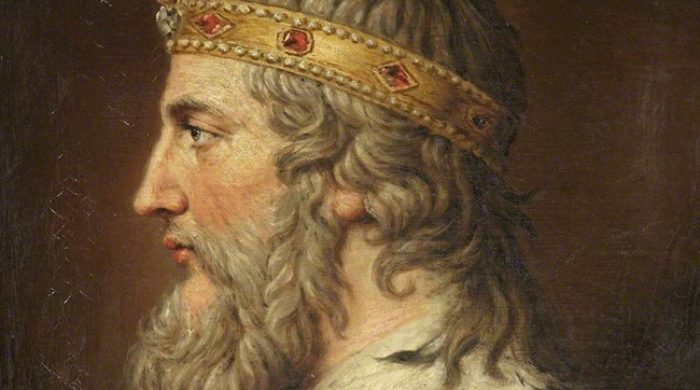
Many scholars only perpetuate the view of Alfred as “great”. Maybe not in full endorsement, but it is hard to deny the great things that Alfred did. Below are a view video excerpts from lectures from such scholars as Kenneth Harl (M.A., and Ph.D from Yale, and teaches the Classics, and History at Tulane University), Tom Holland (Ph.D from Oxford University, and is a best-selling Author) and an unknown Professor from Auburn University.
Importance of Alfred
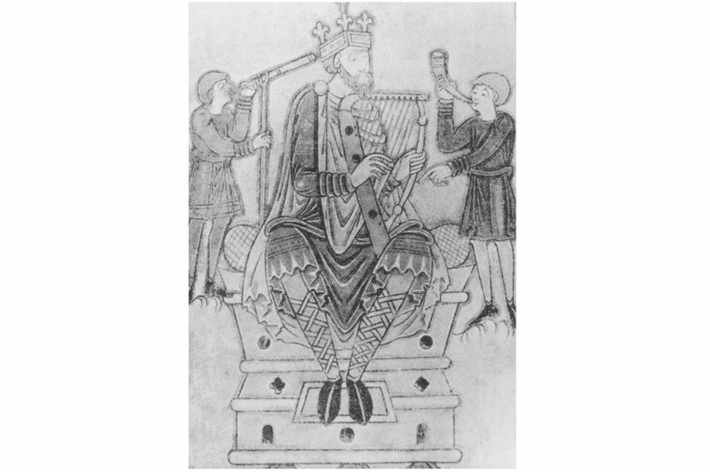
A BBC Video (for UK Children) Explaining why Alfred was great: BBC Learning – Who was Alfred the Great? from Reflective Films on Vimeo.
The importance of Alfred can be seen in every post that came before this one. From the beginning of this project, I have tried my hardest to find information that would provide me with the proof I need, to say Alfred wasn’t great. But, the contrary has happened, and I have found numerous sources that maintain he was a fair, and good leader. He cared about learning, and pushed for campaigns to turn Latin text to English. He built walls and barriers to protect from future Viking invasions. He even turned his enemies into allies, like in the case of Guthrum, or Athelstan as he would come to be known.
Alfred is the ONLY English King to garner, and retain the term “Great”. He is the only English Monarch to be known as “the Great”.
Alfred’s importance can be seen all over the UK today. Children in school learn about Alfred the same way Americans learn about George Washington, or Thomas Jefferson. Imagine all these founding characters were one person who, almost, single-handedly set the road for English Culture, and language. The internet is filled with forums of Ph.D wielding Historians, as well as Arm-Chair Historians arguing what “would have happened to English if Alfred was defeated by Ubba, and Guthrum”, and most agree that the English language and culture might have not existed in its present form, but instead would have heavily been influenced by the Danes, and so-on.
To see Alfred’s influence as a uniting force for everything “English” can be seen in this time-lapse video I found while researching. If you start the video @ 04:32 (865 c.e.), you see the “England” Alfred was born and raised in. Fast forward to minute 05:27, and you will see the beginnings of a united England. It was Alfred, who acts as the catalyst for the country known as England and theoretically, us.
To understand Alfred’s importance to the throne of England, I have included a monarchy video that details the Throne of England’s lineage from Alfred to Elizabeth II.
Sources: https://www.historyextra.com/period/anglo-saxon/king-alfred-great-facts-life-death-famous-buried/
Proof of Alfred’s Life
A Jewel Ordered to be made, possibly, by THE Alfred:

Unlike other legendary, almost mythic characters. Alfred has proofs of his existence; books about him written in his time period, or books translated by him. Underneath this are a few things to help prove Alfred’s existence, although none can tell me how great Alfred was; just that he was, in fact, great.
An article from 2014, detailing the digging up, and DNA tests of Alfred’s, possible, remains: https://www.ancient-origins.net/news-history-archaeology/have-archaeologists-finally-found-king-alfred-great-001234
An article detailing jewels and coins found from the time of Alfred the Great: https://www.independent.co.uk/news/science/archaeology/watlington-hoard-saxon-and-viking-treasure-from-the-time-of-alfred-the-great-discovered-in-a6768421.html
Information regarding the Alfred Jewel: https://www.thevintagenews.com/2017/01/31/the-alfred-jewel-one-of-the-most-famous-and-mysterious-treasures-from-anglo-saxon-england/
Alfred Remembered Today

If you haven’t noticed, I have been sprinkling little bits of Modern work related to Alfred all over this blog. Alfred’s story is as familiar to some of us, as the founding of our nation. The interest in Alfred has gone up in recent years, and that is probably due-to new shows.
Alfred is remembered today for many reasons, one of those reasons is due-to the unearthing (in 2013), of what some believed to be Alfred’s grave. This, in my opinion, peaked the interests of English and non-English speakers all over. The shows, as of late, residing on streaming and cable alike, all turn Alfred into a legendary like figure. Shows like, The Search For Alfred The Great (BBC), The Last Kingdom (Netflix), Vikings (History Channel), and many more that use his life in allegorical form. This is easy to understand as Alfred’s story is important to our own, because had he not fought off the Danes, many scholars believe English as a language and culture might not have survived.
Was Alfred not-so Great?
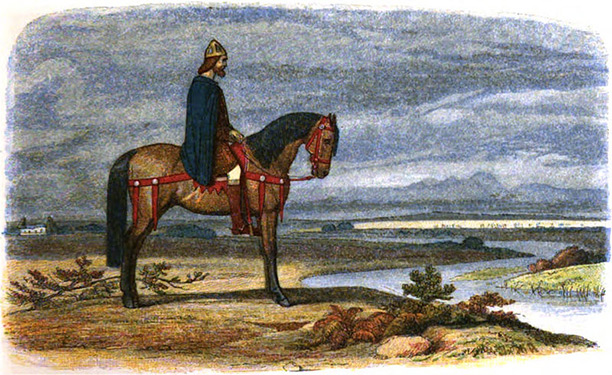
The answer is no. According to every source I researched and tirelessly looked over, Alfred promoted learning, morality, and a fairly governed populace. He was one of, if not the first, King to look at the morality of being a King. He was an empathetic and understanding King. Well-thought, and very composed. Unlike the common image we can all render of an out-of-touch, and out-of-control King; Alfred was not this, at least not according to any source; from the scholarly to the laymen that I could find.
A quick google search will reveal how praised and loved Alfred still is 1200+ years later. Some articles even call him the “Most perfect man in History”.
Source to view:
https://www.historytoday.com/archive/alfred-great-most-perfect-man-history
Alfred’s Return
Uniting the Anglo-Saxons

This is the moment, all other moments are only secondary to this. Alfred took a gamble that he would be met with the surrounding armies at Egbert’s Stone. He had no reason to believe this would work, but it did. Like a great cosmic blessing, the Viking armies were sunk at Dorset, and Guthrum was forced to run, and face Alfred head-on at the Battle of Edington. But, none of that would matter if Alfred hadn’t returned to fight off the invasion, and it definitely wouldn’t have happened if the other armies didn’t show up. I will postulate this one out of my own opinion.
Using logic, I think we can all agree that most people wouldn’t unite to fight an invading force, if the current power wasn’t one you agreed with. Therefore, Alfred must have been or done something pretty great for these armies to meet up with him, and decide to take back England from the Invaders.
Alfred’s Exile
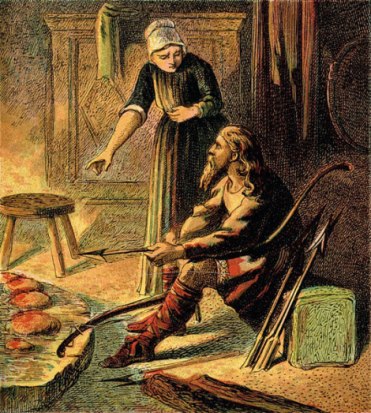
One of the most legendary stories regarding Alfred is during his exile in Somerset marsh. Allegedly, he was tasked with watching a set of cakes cooking by the person with whom he was staying. He lost track of time, and let the cakes burn. He was, obviously, pre-occupied with the idea of chasing out a Danish invasion, this story doesn’t give much in the realm of understanding what made Alfred great, but it does offer a little humanizing aspect to the man, the myth, the legend. A legend nearly as big but far more real than King Arthur.
Guthrum’s Baptism – Treaty of Alfred and Guthrum
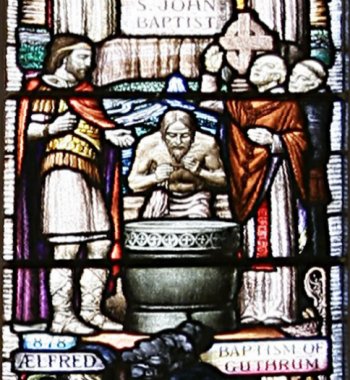
Aside from Guthrum’s defeat, it was his baptism as a part of the Treaty that would seal Alfred’s fate as Alfred the Great. Guthrum was baptized and accepted as Alfred’s adoptive son. He was kicked out of Wessex and given the lands referred-to as the “Danelaw”. As much as this makes Alfred great, one tends to wonder why Guthrum took the extra step in accepting Alfred as his father? Interesting to say the least.
Scene from The Last Kingdom, wherein Guthrum is Baptized (also some behind the scenes footage):
Guthrum’s Defeat
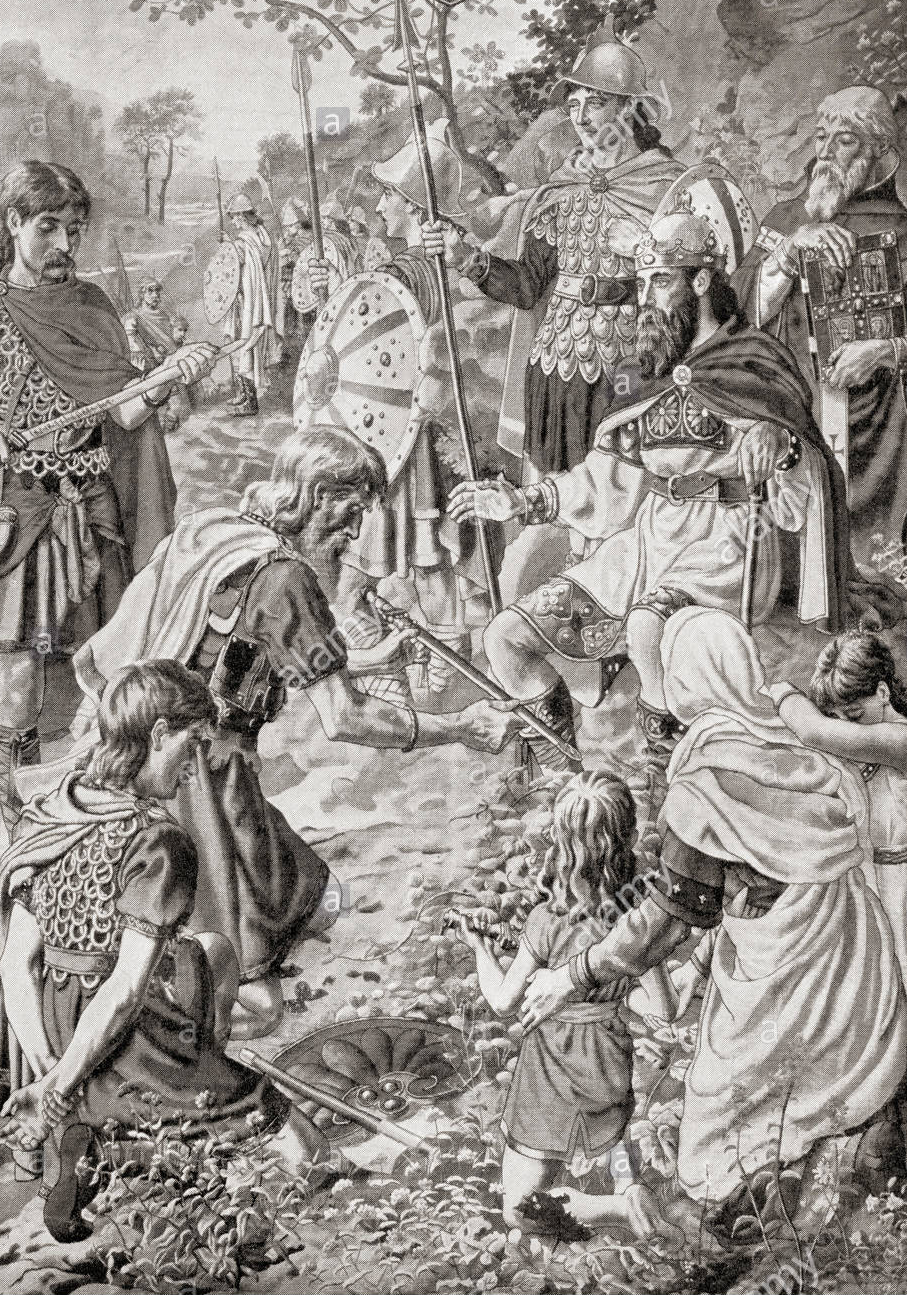
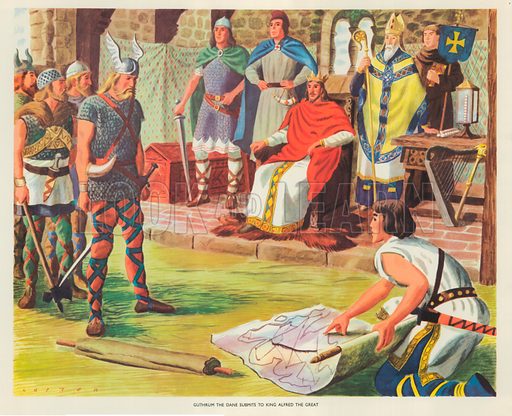
If there is one moment, or one single event that made Alfred great, this would be it. After inheriting the throne in 871 to the defense of Wessex against a “Great Heathen Army” (Tombs Pg. 30), Alfred forced them to retreat. But, in 875 the Danes (led by Guthrum) launched a new offensive, forcing Alfred to flee to the marches of Athelney in Somerset (Tombs. Pg. 30).
It’s what happens after Alfred’s flee that makes him the legend we still speak of, even today. Alfred called upon all the saxons to fight the common enemy, and meet him at Egbert’s Stone. 3 armies from 3 counties made it; Somerset, Wiltshire and Hampshire; to fight the Danes. This was before the battle of Edington which ended in a decisive victory and a treaty between the Danes, and Alfred.
Little known, or at least unknown to me, fact: Guthrum pledged to be Alfred’s adoptive son after the Defeat. Alfred gave Guthrum the “Danelaw” and he agreed to stay there and not attack Alfred’s forces ever again. He actually played by those rules, for the most part, till he died; by then known as Aethelstan. Now, the Baptism, I will cover on the next blog, but this next fact I found to be harder to research fully. Just know that, Alfred literally made Guthrum his son. Yes, Guthrum became Alfred’s adoptive son. WOW. Pretty brutal, and a good indication of why Alfred remains “Great”.
Sources:
Discenza, Nicole Guenther, and Paul Edward. Szarmach. A Companion to Alfred the Great. Brill, 2015.
Tombs, Robert. The English and Their History.
Vintage Books. New York City, 2016.
